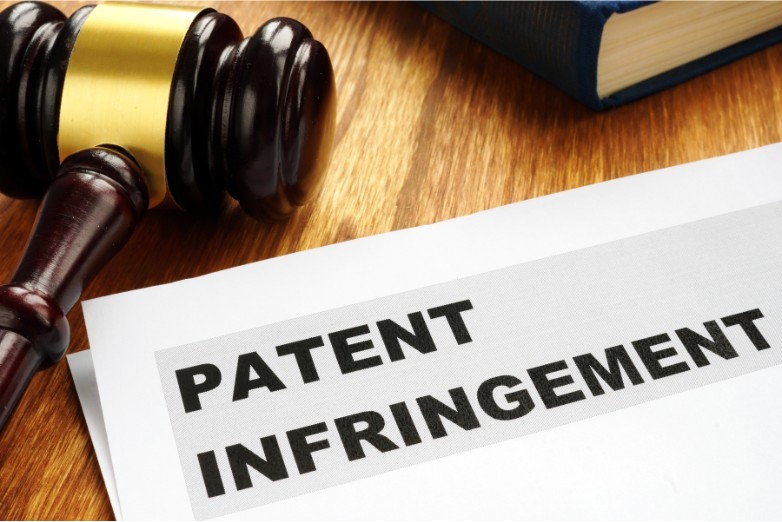Google’s Patent Infringement Woes: The Importance of Performing Patent Due Diligence
In recent years, Google has found itself entangled in a series of patent infringement cases that have raised questions about the challenges big tech companies face with their intellectual property strategies. This article delves into the notable patent infringement cases that Google has faced and the potential ramifications of such legal battles on a tech giant.
The Patent Infringement Cases Against Google So Far
Sonos
One of the prominent patent infringement cases against Google involved Sonos, a leading audio technology company. Sonos has emerged victorious in a patent infringement case against Google, with a jury ordering Google to pay Sonos $32.5 million. The verdict, issued in a San Francisco courtroom, found that Google’s smart speakers and media players had infringed on one of Sonos’ smart speaker patents. This legal dispute began in 2020 when Sonos accused Google of copying its multiroom audio technology, despite their prior partnership in 2013. Sonos previously won a case at the US International Trade Commission, resulting in a limited import ban on certain Google devices. Google had to remove some features from its smart speakers and displays as a result.
Personal Audio
Personal Audio, a non-practicing entity, took legal action against Google, asserting that Google’s podcasting platform violated its patents. A jury in the United States District Court for the District of Delaware has found Google guilty of patent infringement and ordered the company to pay $15.1 million in damages to Personal Audio, LLC. Personal Audio, a company holding audio software-related patents, claimed that Google’s music app, Google Play Music, infringed on two of its patents. These patents pertain to how Google Play Music enables users to download, navigate, and edit playlists. The jury ruled in favour of Personal Audio, finding Google’s infringement to be wilful.
Touchstream
The Touchstream case involved allegations that Google’s streaming services infringed on Touchstream’s patents related to video streaming technology. A federal jury in Waco, Texas has ruled that Google violated a software developer’s patent rights related to remote-streaming technology. As a result, Google must pay $338.7 million in damages to Touchstream Technologies, a New York-based company that also operates as Shodogg. Touchstream had filed a lawsuit in 2021, claiming that Google infringed on its patents regarding the ability to stream videos from one screen to another. Touchstream alleged that Google’s Chromecast and other devices copied its innovations and violated three of its patents. Google plans to appeal the verdict, asserting that it has always developed technology independently and competed based on the merits of its ideas.
How Can Patent Infringement Cases Damage a Company?
These three cases shed light on the challenges tech giants face when navigating the complex world of intellectual property, the importance of protecting their IP and performing rigorous patent due diligence. Patent infringement cases can inflict significant harm on a company, both financially and reputationally. They often lead to:
- Financial Losses: Legal fees, potential damages, and licensing costs can cripple a company’s financial resources.
- Reputation Damage: Public perception of a company can suffer, particularly if they are seen as infringing on others’ intellectual property rights. This can affect customer trust and investor confidence.
- Product Delays: Ongoing legal battles can lead to delays in product development and launches, potentially allowing competitors to gain a competitive edge.
The Importance of Properly Performing Patent Due Diligence
To mitigate the risk of patent infringement, companies like Google must prioritise patent due diligence. This process involves:
- Thorough Research: Identifying existing patents related to the technology or products a company intends to develop or acquire.
- Legal Analysis: Assessing whether the company’s activities might infringe on existing patents and seeking ways to design around them if necessary.
- Licensing: If infringement is likely, negotiating licensing agreements with patent holders to avoid litigation.
- Monitoring: Continuously monitoring the patent landscape to identify potential threats and opportunities.
Conclusion
In conclusion, Google’s encounters with patent infringement cases underscore the complex challenges that tech companies face in today’s innovation-driven landscape. Proper patent due diligence and proactive measures are essential to safeguard a company’s reputation and finances. By staying vigilant in the ever-evolving patent landscape, companies can navigate the intricate world of intellectual property and avoid costly legal battles.
Perform in-depth Patent Due Diligence and Protect your IP with Minesoft
Innovative companies must perform patent due diligence to protect their IP and avoid infringement. Having the right tools at your disposal to perform accurate patent search and analysis is crucial. PatBase offers the most comprehensive patent database available with many advanced features to enable patent experts to conduct in-depth FTOs and validity searches. Minesoft Origin’s AI search features empower R&D teams to perform simple patent searches to direct their R&D activities and avoid wasted budget before sending their findings to their patent specialists. Minesoft’s solutions can help bridge the gap between IP and R&D teams and streamline processes, contact us today for more information on how we can support your teams!

